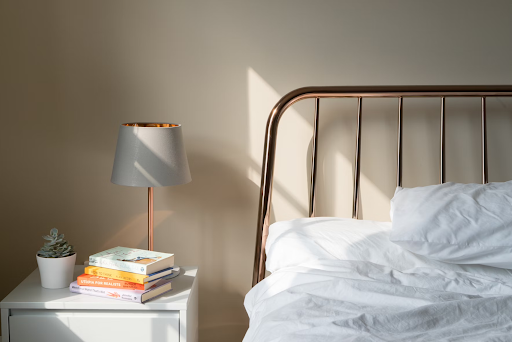How to Get a Good Night's Sleep in Winter

Author: Jonathan Warren
As the night’s roll in and the season of chestnuts roasting on an open fire is upon us, you’d think that a cosy winter’s night in goes hand in hand with a restful sleep. But sadly, this isn’t the case for many who find the colder months play havoc with their sleep quality.
We all know how hard it is to feel bright and perky come morning when you open the curtains and it’s still dark outside. So, to help you fight off the seasonal slump for good, we’ve put together our top tips for how to get a restorative, quality night’s sleep in winter now Jack Frost has come to town.

Why do we feel tired in winter?
Finding it hard to roll out of bed now summer’s a distant memory? Don’t fret; there’s method behind the madness.
Less daylight
If you’re wondering why you’re feeling sleepier now it’s darker outside, we have one word for you: melatonin. Melatonin is a hormone we all produce that controls our tiredness levels and is directly linked with light and dark. Light means less melatonin and increased alertness; dark means more melatonin and a very sleepy you.
Sunlight is crucial in dictating and regulating your circadian rhythm (or for us laymen, your sleep-wake cycle). Bright mornings tend to leave us feeling, quite literally, bright-eyed and bushy-tailed as the photoreceptor cells in our eyes kindly tell our brain that it’s daytime and our body should be awake. However, in winter, our photoreceptors are completely disorientated and mistake darker mornings for night-time, meaning – you guessed it – increased production of melatonin that makes it harder for you to crawl out from in-between the sheets and start your day.
Changes in temperature
Changes in temperature can also turn our ability to drift off into the land of nod upside down. Colder climes make it more difficult to get warm come nightfall, meaning we spend more time cocooning in our duvets to stop the shivers rather than getting some quality sleep in. And whilst you may think the simple solution to beating the big chill would be to turn the heating on, heed the warning of experts who have found the most common reason people struggle to fall asleep (and stay asleep) is because they’ve made their bedroom too warm just before drifting off.
Ways to reduce tiredness in winter
Maximise sunlight
To give your circadian rhythm a fighting chance, you want to make sure you’re getting as much natural light as possible. As soon as you wake up in the morning, throw open those curtains, roll up that blind and get yourself outside for a brisk morning walk. You’ll be surprised at how much a quick walk in the light of day will boost your energy levels and lift your mood.
Working from home and can’t get outside? Make sure you’re positioned in a nice bright spot near a window so you’re getting your fill even when you’re indoors.
Stick to your sleep schedule
We all know you feel wiped out the day after having too little sleep, but a lie in during winter can leave you feeling just as groggy. Whilst it’s tempting to stay in bed and hibernate when it’s cold outside, make sure you get yourself up and out to avoid feeling so sluggish.
Work on creating a healthy bedtime routine; stick to going to sleep and waking up at the same time every day, allowing for the optimal eight hours of sleep if your routine permits.
Choose the right duvet
Let’s talk about togs. The higher the tog rating, the warmer the duvet; so, we’re afraid your lovely little 5-tog summer number just won’t cut the mustard at this time of year if you’re after a sound night’s kip. As a rule of thumb, we’d recommend searching for a duvet with a winter tog rating between 10 and 13.5.
Exercise
It can be hard to find the motivation to exercise on a cold winter’s day – especially when it’s mince pie season – but a workout could be the missing ingredient as to why you’re struggling to drift off.
Not only will an afternoon gym sesh lift your mood with a rush of endorphins, but it will also stave off any early evening fatigue and help you to fall asleep as soon as your head hits the pillow. But be warned: don’t exercise too late in the evening. Those same endorphins that pepped you up at lunchtime will keep your brain whizzing at night-time, too.
Eat healthily
Vitamin D is your tasty new best friend. In summer months, our bodies get lots of Vit D from natural sunlight so as the days get a little darker, we may feel groggy as a result of not getting our usual fill. Pepper your diet with Vitamin D-rich foods such as oily fish, eggs and cereals as well as lots of fruit and veggies – your body will thank you later.
Make sure your mattress is working for you
Finally, and most importantly, ask yourself: is your sleeping environment as comfortable as it can be? If it’s not, your mattress could be the problem. A bad mattress means a bad sleep, so don’t compromise.
Buying a new mattress is an extremely personal choice, after all, it may well be your sleeping companion for the next ten years! Whether you prefer the slight bounce and support of a pocket sprung mattress or the body-moulding qualities of a memory foam mattress, explore our range to find the perfect match for you.
Not sure where to start? Check out our guide on Choosing the Perfect Mattress.



